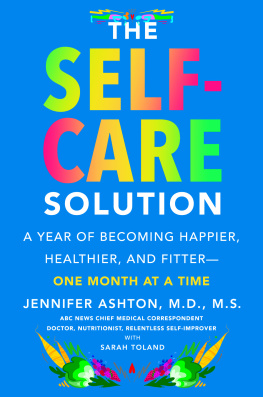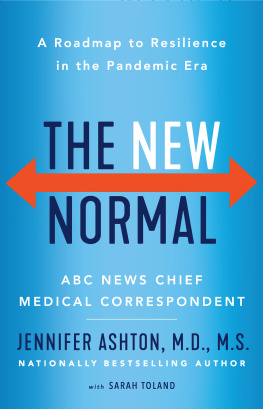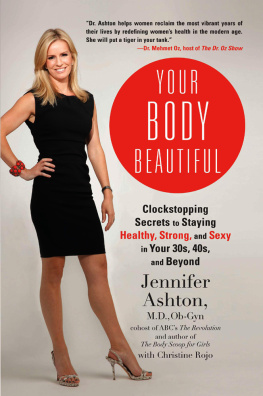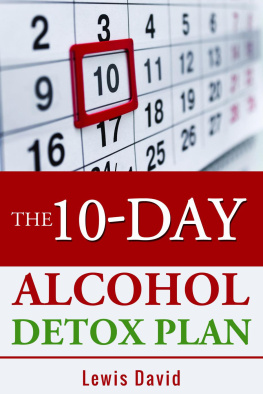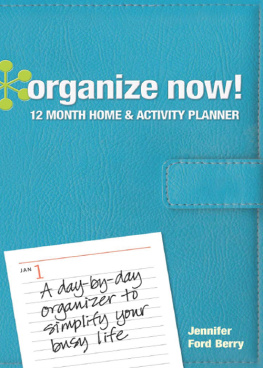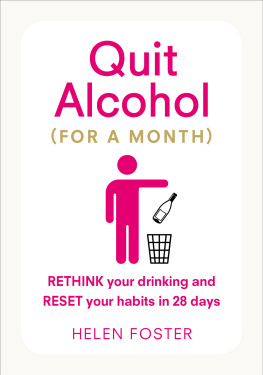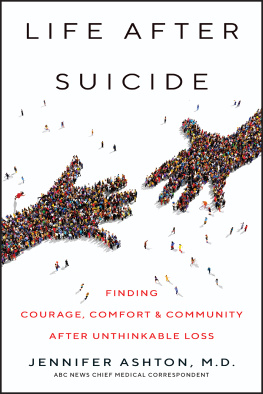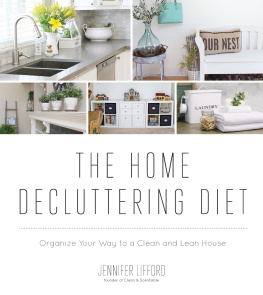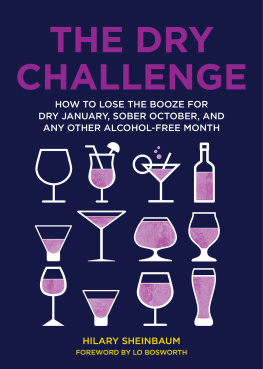Contents
To self-improvers everywhere. And to my two greatest sources of inspiration and motivation, Alex and Chloe.
I didnt set out to do a year of self-care. In fact, if youd asked me at the start of last year if I needed to spend a year to focus on taking care of myself and my life, I probably would have told you that I didnt have time for that. Actually, I definitely would have told you that. While Ive always been a self-proclaimed, relentless self-improver, the prior year had been the hardest Id ever experienced. So when it came to self-improvement, or more important, self-care, in many respects it was the last thing on my mind.
The truth was, though, the fact that Id kind of deprioritized self-care was perhaps the very reason why I needed it so badly. Before I embarked on this year, my emotional life had been in disarray, and taking time out to better myself seemed like the last thing I could handle. My previous year had been spent dealing with the painful aftermath of my ex-husbands suicide, and during those difficult and emotional months, the thought of taking time to focus on myself felt selfish. My kids needed me; my family needed me. To be spending time on me just felt wrong and unrealistic. I wasnt focused on the fact that hard times are often what make self-care so essential.
Perhaps thats part of the reason why I stumbled headfirst into this whole plan. It didnt start out as a plan or even a goalit started out as one month.
As the holiday season wrapped up, I decided on a whim to give up all alcohol for Januarynot because I believed I was drinking too much but because I liked the idea of challenging myself to see how tweaking a regular habit could improve my life. What happened to me after one month without booze was shocking. First, I learned more about myself in thirty days than I had in years. Second, giving up alcohol for a short time dramatically changed my body, mind, mood, and attitude toward booze. Moreover, I didnt want the self-discovery and feel-good benefits Id enjoyed by doing this experiment to end.
That month of success reinvigorated something in me. Its part of my DNA as a physician and a medical correspondent for one of the most watched television shows in America. But its also part of who I am, Dr. Jennifer Ashtona type A, driven, and goal-oriented human being. Theres little I enjoy more than setting targets for myself and hitting them. And as a medical professional, I like using science and data to make sure I have my best chance at a bulls-eye.
And like so many people, I start every year with the hope of a New Years resolutionoften more than one. Of course, also like so many people, making resolutions stick permanently, knowing whats really beneficial to you, is easier said than done. But doing something for just one month? That feels achievable. That feels like the ideal length of time for experimenting. That feels like a great opportunity to understand how different kinds of self-care can have positive impacts on your life.
What emerged from that dry month was a plan, or at least the makings of one. I decided to do an experiment: each month I would tackle a different self-improvement wellness challenge, with push-ups and planks for thirty days, then meditation for thirty days, then regular aerobic exercise for thirty days, and so on, until Id completed an entire year of minor monthly health changes. In doing so, I would understand exactly how each health improvement impacted me and become more conscious about my choices going forward.
Looking back now, I never could have guessed the profound effect that this personal experiment would have on me. From my emotional state to my diet to my sleep, I ended the year stronger than I have been in a long time. And what I learned about myself along the way was truly surprising.
While Im a doctor and a nutritionist, its not easy for meor anyone, regardless of how much you take care of your body and mindto assess what our daily habits are doing to us unless we take the time to actually examine them closely. And thats something almost nobody does. If you asked any casual observer before all this started, I likely appeared to be the epitome of near-perfect health: I was slim and fit, as I still am, and I dont smoke, use drugs, or have an alcohol problem. At that time last year, I also exercised almost daily, ate mostly whole foods, didnt suffer any mental ailments, and slept at least seven hours each night (or so I thought), while maintaining a successful career, active social life, and close family relationships.
If youre wondering why these minor changes each month produced such definitive change, the answer is simple. The impact of what we do every day for basic healthwhat and how much we eat and dont eat, what and how much we drink and dont drink, how much rest we get or dont get, how we move or dont move our bodieshas the potential to impact our overall health in very positive or very detrimental ways. Thats because food, drink, sleep, and movement are all essential for our survival. And while these habits may have only a minor impact on our daily lives when taken in isolation, what we do and how we live each day adds up quickly, or even exponentially, when you push repeat week after week, month after month, and year after year. What this means is that if one aspect of your habits for essential health is lacking or even less than perfect, it can compound over time and end up interfering profoundly with your health and happiness, often without you knowing it.
For example, how much water you drink in one day isnt likely to send you to the hospital (although dehydration did put me in the hospital on three occasions earlier in my life, I didnt know water was to blame at the time). However, failing to consume enough water every day for weeks and months can be associated with chronic dehydration and, consequently, a whole host of physical and mental problems, including weight gain, fatigue, and bad breath.
To that end, all the health habits I focused on last year werent inconsequential: Every monthly challenge I included in this book has been objectively linked by reams of research to being critical to overall health and happiness. Theyre not just arbitrary practices that affect only me; they are well-studied behaviors (or lack thereof) that can have a known and profound effect on universal wellness, no matter who you are. They are habits everyone can and should do, regardless of your age, gender, body type, fitness level, financial means, career, or lifestyle.
After a year of challenging and changing these imperative habits, I can now tell you that Im happier and healthier than Ive ever beenand not because I made a big dramatic change, went on some crazy diet, or spent three torturous months starving or working my butt off at some pricey health retreat. In short, I learned the solutions to my own self-care. And now, I want to share those solutions with you.
I used to think of self-care as mostly cosmeticthings I had to do to look better and keep up appearances, like haircuts, facials, blowouts, manicures, and spa treatments. Sure, I considered going to the gym and, more recently, meditating as part of my self-care, but I saw these habits as something to do to maintain my health, not necessarily to improve it. And also, to be honest, I looked at these things as part of my job: After all, I am the face and the voice of health and wellness for the countrys number one news network. I felt I needed to look the part!
After a year of monthly health challenges, though, I now know self-care goes far beyond surface appearances and fundamental physical and mental health. Analyzing what I did with my body, mind, and free time on a daily basis forced me to realize that taking care of myself also includes how I act, think, make decisions, treat others, feel about the world, and, perhaps most important, feel about myself. Self-care now means deliberately taking the time to take care of my inner self as much as I do my outer self, giving my behaviors and emotions the same, if not more, attention than I do my hair, face, and skin.

